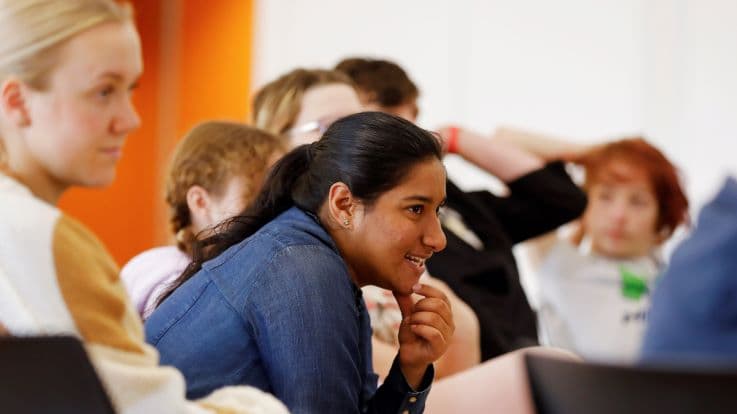
Reform crucial to creating a better, fairer education system
Doug Taylor
Chief Executive Officer at The Smith Family
When Federal Education Minister Jason Clare made his first National Press Club address last week, he told the audience that he’s not only the first in his family to graduate from university, but he’s also the first in his family to finish Year 10. As The Smith Family’s CEO, it’s a story I’m deeply familiar with. It’s a story of missed opportunity.
If our young people aren’t exposed to different careers from a young age, that’s a missed opportunity. If they get the marks to get into university but can’t afford to study and work, that’s a missed opportunity. And if they are the first in their family to finish Year 12, but don’t have guidance on how or what to do post-school – that’s another missed opportunity. It’s a missed opportunity for our whole nation if our young people can’t live up to their potential.
The interim report on the Universities Accord has been unveiled, with the goal to make Australia’s education system better, fairer, and more equitable. To offer more opportunities to those who are least likely to receive them. That is, young people from disadvantaged backgrounds, those from the bush, and Aboriginal and Torres Strait Islander students.
This reform is crucial because, as the minister said, “we live in a world where almost every single new job that’s created will require you to finish school and go to TAFE or uni.” Currently, one in two Australians have a degree, but just 17% of undergraduates are from disadvantaged backgrounds. And that figure has barely shifted since 2011, when it was 15.1%. This slow progress reinforces the need for change. We need to create opportunities for all students, not just those who are from well-off families.
As a charity that supports students most in need, we are familiar with the barriers they face. And, through our research, we have also come to evidence-based solutions on the best way to help.
The first barrier is financial constraints. The Sydney Morning Herald recently reported that half of all Australians would struggle to pay an unexpected bill – so imagine the pressure on the most economically vulnerable group in our country, young people. We recently released new research on young people’s pathways post school, the Pathways, Engagement and Transitions (PET) Report. Through this, we found that many young people are having to leave study to work because they simply can’t afford it. Others are feeling the pressure of ‘placement poverty’ while doing compulsory, unpaid internships in hospitals or classrooms. While these placements are valuable, there is a need to support those young people who struggle to afford them. The interim report has recommended paid placements, as well as part-time work in students’ field of study – which would go a long way to alleviating this balancing act between work and study that young people are forced to perform.
The second barrier is a lack of career exposure. Many of the 60,000 children and young people we support don’t have wide networks to tap into. Their parents or carers aren’t socialising with people in highly paid careers such as banking, the law and IT to get up to date careers advice. Research shows that the more touchpoints young people have with the world of work, the more likely they are to finish year 12 and get a job.
Being able to imagine your future pathway and see it clearly articulated is an incredible motivator. This is why, with the help of Commonweath funding through the Department of Education, we have working in partnership with schools to implement the Growing Careers Project, giving opportunities to students to experience the world of work from the beginning of secondary school. We welcome the interim report’s focus on work-related learning, a national skills passport, as well as the integration of VET with universities, so that pathways are clearer, and there are more opportunities for students to explore potential careers.
Young people experiencing disadvantage also need additional personal support. International and Australian data shows that young people from disadvantaged backgrounds have lower levels of self-efficacy than their more advantaged peers. Through our 2022 PET research, we found that some young people wanted “more support to develop self-confidence and other life skills, including how to seek help, seize opportunities and learn from their mistakes.” For the students on our Learning for Life program, there are opportunities for guidance and support for their education through one of our frontline team members. Every day, our colleagues do things like give advice on careers, refer parents to additional services they need, help with university scholarship applications, and keep an eye out for opportunities that can build their student’s confidence – like art or sport programs.
This extra support, along with the financial assistance, goes a long way. This is acknowledged in the interim report’s recommendation of a new needs-based funding model, which would incentivise universities to enrol more students from disadvantaged and underrepresented backgrounds, and importantly, to help them graduate.
As Minister Clare said at the Press Club, ‘education is the most powerful cause for good in this country’. Let’s make brave and bold decisions now, so every single child and young person for generations to come is no longer limited by a lack of opportunity, and can live up to their full potential.



